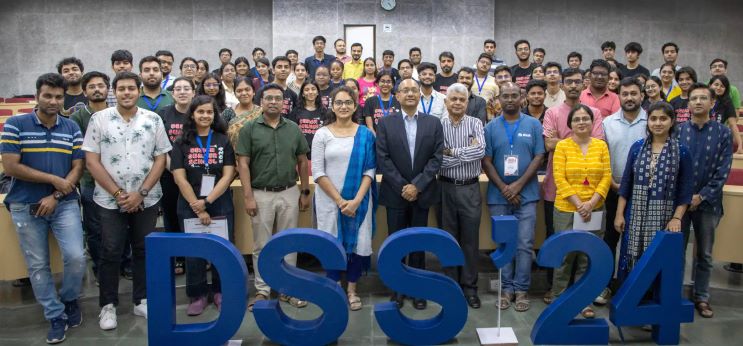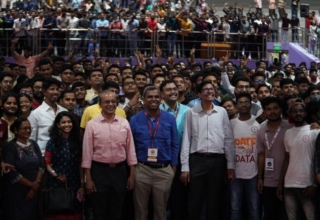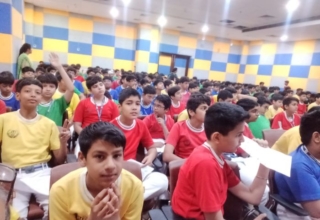
The Design Summer School 2024 spread over five days and organized at IIIT-Delhi by the Department of Human Centered Design in collaboration with Center for Design and New Media (sponsored by Tata Consultancy Services, A TCS Foundation Initiative) IIIT-Delhi and Design Innovation Centre, IIIT-Delhi came to a successful finish on June 10. The event gave participants from all over the country an opportunity to learn from our faculty, who are without a doubt one of the best in the country, over a span of 5 days through interactive sessions and workshops.
According to Dr. Richa Gupta, Head of the Department of Human-Centered Design, “This is the first time IIIT Delhi had organized a Design Summer School and the idea was to open the gates of the institute to students who are interested to know about HCI and Design Thinking. The event was highly successful both in terms of the number of enthusiastic participants we saw as well as the feedback we received from all participants, who enjoyed and benefited from the sessions.”
Day 1 focused on the Design Thinking process.
The first session, conducted by Prof. PVM Rao, introduced participants to various design aspects such as utility, usability, and user experience, emphasizing the interdisciplinary nature of HCI, which encompasses design, computing, and accessibility. The session also covered the challenges in HCI, such as accessibility, affordability, and awareness. This was followed by a panel discussion with Prof. Rao, Ms. Sangita Garg, Dr. Richa Gupta and Dr. Rajiv Ratn Shah, who discussed the implications of technology, security concerns in a data-centric environment, and other pertinent topics. Participants later engaged in enriching sessions led by Dr. Richa Gupta on Design Thinking, Creative Problem Solving, and an Introduction to HCI. The day concluded with an insightful session on Design Thinking methods and Miro software, conducted by Mr. Arunesh Singh and Dr. Richa Gupta.
Day 2 was dedicated to Interaction Design Theory.
Dr. Sonal Keshwani led the first session, introducing the principles of Human-Centered Design (HCD) such as affordance, signifiers, and compatibility, explaining each in detail. The second session involved need-analysis methods like questionnaires, surveys, and role-playing. Participants engaged in group activities to write and analyze role-play scripts. The final session, conducted by students from the MIDAS Lab, focused on application prototyping using Figma, where participants created prototypes of social media applications.
Day 3 centered on Gaming and Animation Design.
Aman Samuel led the sessions, starting with an introduction to game theory and the creative process of game design. Participants engaged in group activities to explore core games and their online variants and listed rules and mechanisms of social media applications. Thereafter Mr. Anoop Ratn introduced participants to the Unreal gaming engine and learned to develop characters using Blender, animate them using Mixamo, and edit videos with Blender.
Day 4 explored XR (Extended Reality) technologies.
Dr. Kalpana Shankhwar introduced participants to VR and XR technologies, their history, and practical applications such as welding and lathe simulations for training purposes. Dr. Anmol Srivastava provided a designer’s perspective on VR/XR/MR/SR technologies, discussing usability engineering principles and the various applications, platforms, tools, and devices used in XR. Mr. Rahul Garg from XR Developer at MythyaVerse, demonstrated different VR games and applications developed by his team, and participants created a small XR simulation using Unity.
Day 5 focused on Human-Computer Interaction with AI.
Dr. Jainendra Shukla introduced participants to Brain-Computer Interface (BCI) technologies, covering invasive, non-invasive, and semi-invasive methods for collecting and monitoring cerebral signals. Dr. Vinish Kathuria provided an entrepreneurial perspective on design, emphasizing the importance of satisfaction, emotion, and trust in product success. Dr. Rajiv Ratn Shah concluded the sessions by discussing various HCI and AI research projects from his lab, providing an academic perspective on the field.
The event concluded with a ceremony where participants were awarded completion certificates. The ceremony, followed by a high tea, provided a fitting end to the enriching and educational Design Summer School 2024.










